What Is the Significance and Symbolism of Fire in the Bible?
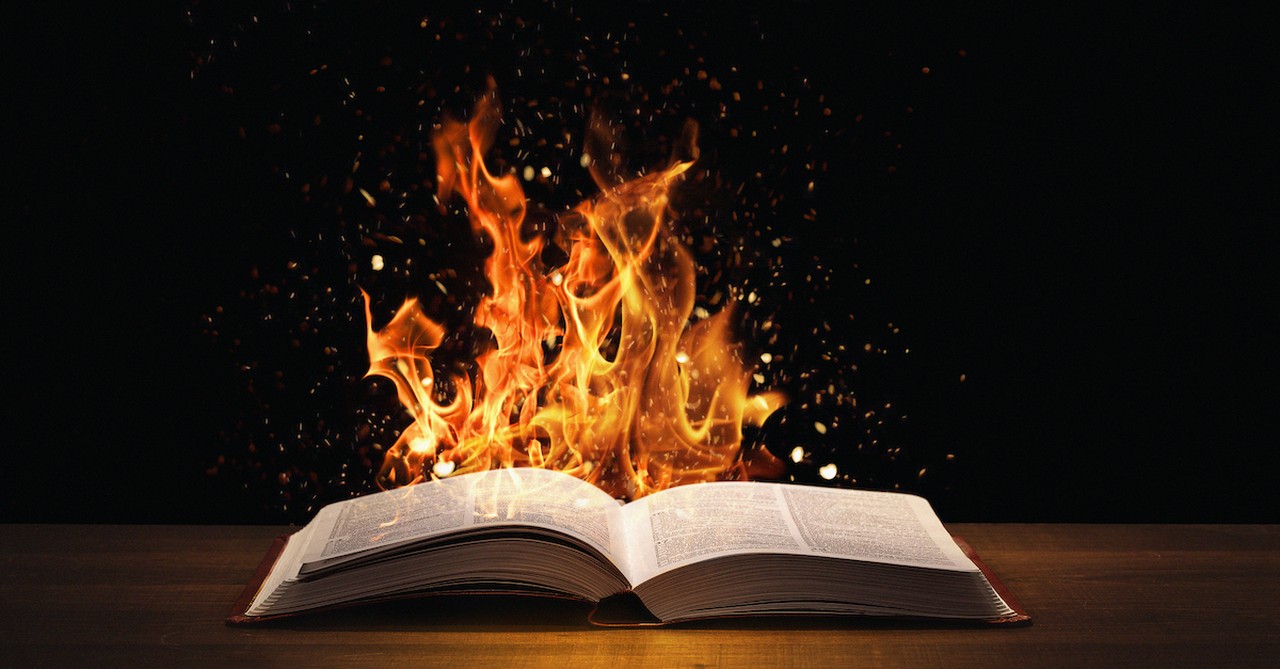
Fire is one of the oldest and most powerful forces of nature in the world. On the one hand, fire has been used to warm homes, cook meals, forge tools, and provide light to millions of people around the world. On the other hand, an untamed wildfire can devastate entire cities and landscapes, leaving behind desolation where there was once natural beauty and life. For this reason, fire has provided inspiration for countless metaphors and symbols over the years. This includes the Bible, which is no stranger to the significance and symbolism of fire.
But what does fire mean in Scripture? Here are a few examples.
Photo credit: ©GettyImages/Javier_Art_Photography
Fire is the Instrument of God's Judgment
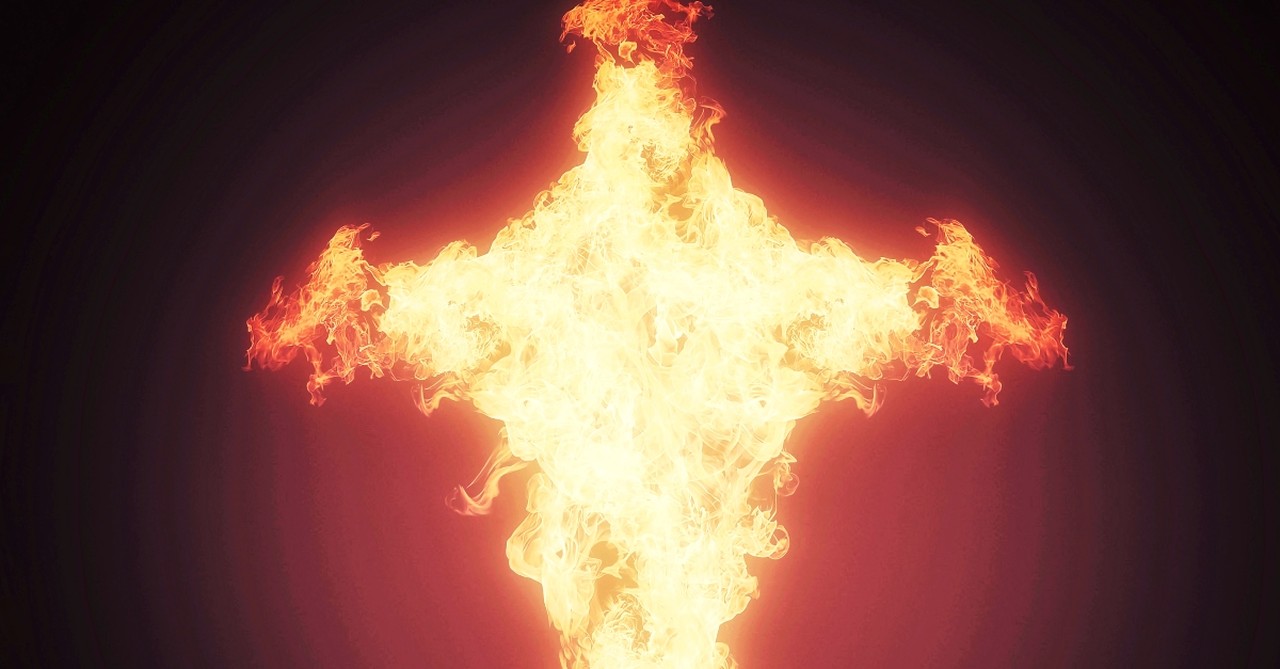
Fire is the Instrument of God's Judgment
SLIDE 1 OF 6
The Bible references fire on many occasions in both the Old and New Testaments. In fact, fire and flame are mentioned more than five hundred times in most translations.
For instance, the Bible compares the tongue to a tiny flame that has the power to set a great forest on fire (James 3:5-6). It also warns that dabbling in sin is like playing with fire. As Solomon writes, “can a man take fire in his bosom and his clothes not be burned?” (Proverbs 6:27)
However, it might surprise some to learn that most references to fire in the Bible are actually as the instrument of God’s judgment, not necessarily a general passion and fervor of one’s faith, as many contemporary worship songs might lead us to believe.
One of the first and most notable examples of this is found in God’s destruction of the cities of Sodom and Gomorrah, which He obliterated with “fire and brimstone” as punishment for their abject wickedness (Genesis 19:1-29). We see something similar in the seventh plague against Egypt, in which the Lord rained “thunder and hail, and fire” upon the earth (Exodus 9:22-26; emphasis added).
After the exodus, we read that Nadab and Abihu, the sons of Aaron, were also punished and “consumed by fire” after they offered profane and irreverent offerings to the Lord, having disregarded His instructions for proper sacrifice (Leviticus 10:1-3; Numbers 26:61; see also the deaths of Uzzah (2 Samuel 6:6-7) and Ananias and Sapphira (Acts 5:5, 10)). Similarly, God used fire to consume those on the outskirts of the camp of Israel when the people grumbled and complained against Him (Numbers 11:1-3).
It was also the prophet Elijah, when confronted by soldiers of the king of Israel (Ahaziah), who called down fire from heaven to consume the king’s messengers (2 Kings 1:9-16). Not unlike God’s affirmation of Moses, this fiery display validated Elijah as a true prophet of God who was acting in authority on His behalf.
Ironically, in the New Testament, two of Jesus’ disciples, James and John, wrongly assumed that they had the same power when they asked Jesus if He would like them to “command fire to come down from heaven” to consume a group of Samaritans who failed to extend hospitality to Jesus on His way to Jerusalem (Luke 9:51-56). Jesus swiftly rebuked His friends, saying, “you do not know what kind of spirit you are of; for the Son of Man did not come to destroy men’s lives, but to save them.” (Luke 9:56)
This does not mean, however, that the New Testament marks a change in God’s character or the end of God’s judgment. The author of Hebrews writes that “Jesus Christ is the same yesterday, today, and forever.” (Hebrews 13:8) Rather, through the death, burial, and resurrection of Jesus Christ, God would usher in a new covenant, a covenant of grace, salvation, and the forgiveness of sins.
In His love, Christ came to be the sacrifice and propitiation for our sins so that we might be saved through Him and be spared the wrath of God (John 3:16-17). Nevertheless, throughout His ministry, Jesus also warned that a time would come when He would separate the redeemed from the unrepentant and assume His rightful place as the sovereign judge over all creation. Jesus said, “I have come to cast fire upon the earth; and how I wish it were already kindled! But I have a baptism to undergo, and how distressed I am until it is accomplished! Do you suppose that I came to grant peace on earth? I tell you, no, but rather division.” (Luke 12:49-51; emphasis added)
Jesus was, of course, referring to 1) the suffering He would endure through the cross and 2) the final judgment that will be poured out on creation and unrepentant mankind in the last days. The apostle John prophetically chronicles this in the book of Revelation, in which fire will again be used as the instrument of God’s judgment (Revelation 8:7-8, 9:18, 11:5, 16:8, 18:8, 20:9; emphasis added; see also 2 Peter 3:7).
Fire Describes Eternal Punishment and Separation from God
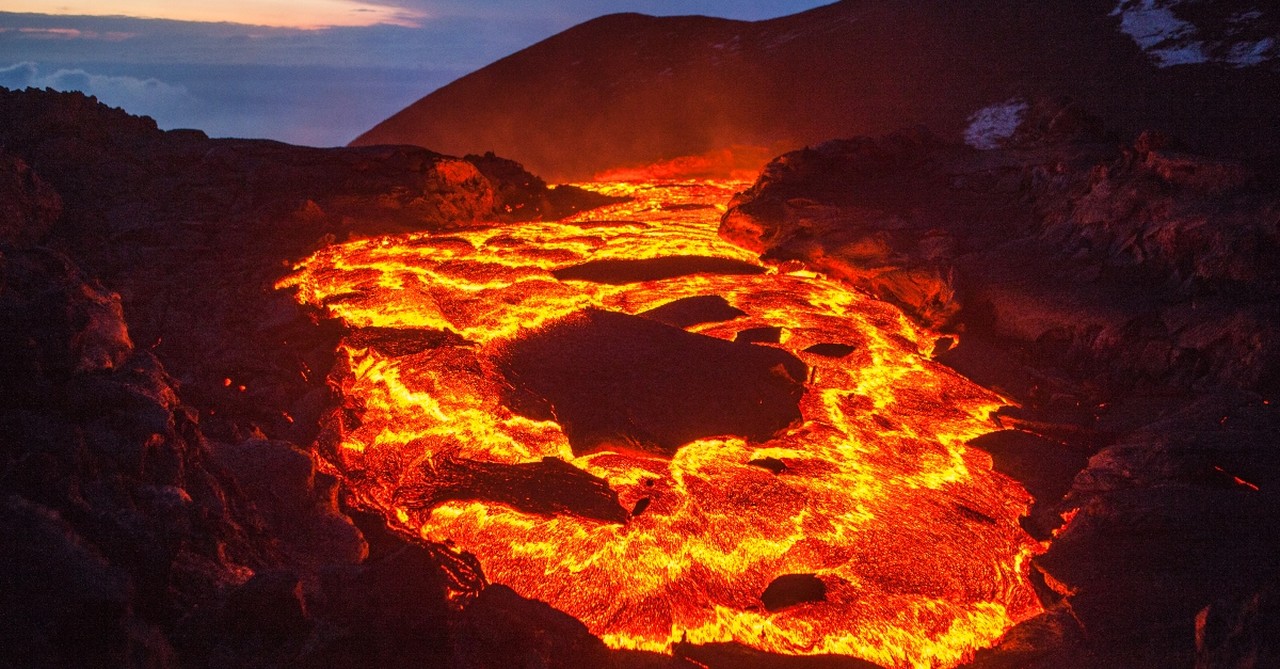
Fire Describes Eternal Punishment and Separation from God
SLIDE 2 OF 6
The most common reference to fire in the Bible is, as mentioned, the instrument of God’s judgment. In the previous examples, however, God’s judgment was often physical and earthly. There is, however, a far more terrifying judgment involving fire described in the Bible. That is the eternal judgment that awaits Satan and his followers, as well as unrepentant sinners, in the last days.
In the New Testament specifically, Jesus repeatedly refers to the eternal fate of those who willfully reject Him and choose to turn from God.
In both Matthew and Luke’s gospel, John the Baptist referenced the coming of the Messiah (Jesus Christ), just prior to His baptism in the Jordan River. According to John, “His (Christ’s) winnowing fork is in His hand, and He will thoroughly clear His threshing floor; and He will gather His wheat into the barn, but He will burn up the chaff with unquenchable fire.” (Matthew 3:11-12; Luke 3:17).
John obviously employs several metaphors here to describe the separation that will happen between the redeemed and those who refuse to repent and believe in the Son of God.
Accordingly, only Jesus Christ has the authority to judge and separate the wheat from the chaff, the righteous from the wicked. To those who reject salvation, they will be “burned up with unquenchable fire,” a reference to eternal judgment (see also Matthew 18:18; Mark 9:43-44, 46).
Later, Jesus proclaimed a similar judgment when He described the separation of the wheat from the tares (Matthew 13:24-30, 36-43). In one of several parables explaining the kingdom of God, Jesus described how people with false faith will often coexist with those of genuine faith. In the end, however, Christ will separate the two. The tares (or those with false faith), He promises to “throw them into the furnace of fire” in a place where “there will be weeping and gnashing of teeth.” (Matthew 13:42)
Jesus further taught that, “if anyone does not abide in Me, he is thrown away as a branch and dries up; and they gather them, and cast them into the fire and they are burned.” (John 15:6; see also Jude 1:23)
This is an eternal reality apart from God that all creation must take seriously. If not, Revelation warns of a “lake that burns with fire”, referring to the second death, that is reserved for Satan and his followers (Daniel 7:11; Revelation 19:20, 20:10), as well as those whose “names are not written in the book of life.” (Revelation 20:15; 21:8)
Photo Credit: ©iStock/Getty Images Plus/Vershinin-M
Fire is the Image of God's Anger and Wrath
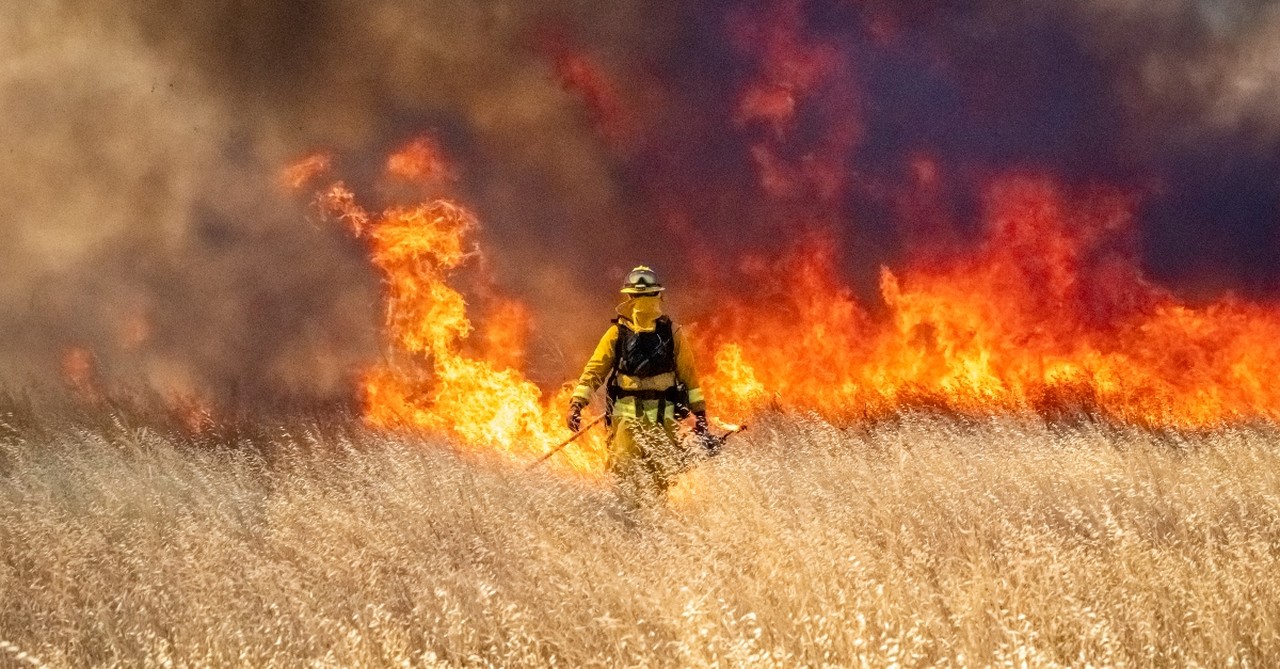
Fire is the Image of God's Anger and Wrath
SLIDE 3 OF 6
These examples all showcase the presence of fire that comes from God as an instrument of judgment. However, fire is also used as a symbol of God’s anger and wrath throughout the Bible.
For example, the prophet Isaiah, speaking on behalf of the Lord, wrote, “for behold, the Lord will come in fire and His chariots like the whirlwind, to render His anger with fury, and His rebuke with flames of fire. For the Lord will execute judgment by fire and by His sword on all flesh, and those slain by the Lord will be many.” (Isaiah 66:15-16) The author of Psalms 89 also asks the Lord, “will your wrath burn like fire?” (Psalms 86:46). Likewise, the prophet Amos warns God’s people, “seek the Lord that you may live, or He will break forth like a fire.” (Amos 5:6)
Throughout the Bible, we see God’s anger kindled like fire against His people for their infidelity and disobedience (Jeremiah 4:4, 15:14, 21:12; Lamentations 2:4, 4:11; Ezekiel 21:31, 22:31, 28:18; Amos 2:5). We also see His wrath poured out like fire on His enemies and those who come against His children (see Ezekiel 30:8, 16, 39:6; Amos 1:4-2:2; Nahum 1:6).
In the book of Psalms, David writes, “upon the wicked He will rain snares (or coals of fire); fire and brimstone and burning wind will be the portion of their cup.” (Psalms 11:6)
It should be noted, however, that not every fire is a revelation of God’s judgment or outpouring of His wrath. We should not be quick to conclude that God is angry and judging an individual, family, or city just because someone’s house is destroyed or a wildfire devastates a community.
Could God use fire as an instrument of judgment? Of course. God is certainly sovereign over His creation and has His hand on everything that happens in the world. Recurring natural disasters are also the product of a fallen, sinful world and a sign that the promised return of Jesus Christ is near (see Matthew 24:1-8). Furthermore, God can and does use tragedy and natural disasters (like fires) to turn hearts back to Him.
However, local wildfires and home fires can also be attributed to human error, failed governance and leadership, and unfavorable weather conditions. Not every fire in history is the mark of divine judgment. We don’t always know. However, in the Bible, this is often the case.
Photo credit: ©Getty Images/Kara Capaldo
Jesus Baptizes with the Holy Spirit and with Fire

Jesus Baptizes with the Holy Spirit and with Fire
SLIDE 4 OF 6
There is another aspect of biblical fire that aligns with God’s love and judgment, which also happens to be one of the most debated amongst evangelical Christians.
In the gospels, John the Baptist heralded the coming of the Messiah. “As for me,” John proclaimed, “I baptize you with water for repentance, but He who is coming after me is mightier than I, and I am not fit to remove His sandals; He will baptize you with the Holy Spirit and fire.” (Matthew 3:11; Luke 3:16; emphasis added)
Author Britt Mooney rightly points out that the more Charismatic and Pentecostal denominations tend to lean into fire imagery when it comes to the power, presence, and work of the Holy Spirit. As justification, they also reference the Day of Pentecost, in which the apostles of Jesus Christ were filled with the Holy Spirit after His return to heaven. On that day, Luke writes that “there appeared to them tongues as of fire distributing themselves, and they rested on each of them. And they were all filled with the Holy Spirit and began to speak with each other in tongues, as the Spirit was giving them utterance.” (Acts 2:4; emphasis added)
This “baptism of the Holy Spirit," in which redeemed believers are empowered, equipped, emboldened, and encouraged by the Spirit, is often represented by the imagery of fire. It is the same “baptism of fire” that transforms and invigorates all believers to do the work of the Lord.
However, other denominations, while acknowledging the power, purpose, and presence of the Holy Spirit in the lives of Christians, distinguish between the three forms of baptism referenced by John the Baptist at the Jordan River.
- Water baptism, the kind performed by John, symbolizes repentance, cleansing, and an identification with the death, burial, and resurrection of Jesus Christ (see Romans 6:3-5; 2 Corinthians 5:17; Galatians 2:20).
- All believers of Jesus Christ are “Spirit-baptized” (1 Corinthians 12:13).
- The “baptism of fire," however, may refer more to God’s judgment still to be poured out on the unrepentant in the last days (see Joel 2:5, 30). This view is supported by the following verses in which John the Baptist references Christ’s “winnowing fork” and separation of the wheat from the chaff (see Matthew 3:12).
In any case, there are differing opinions on the significance and symbolism of fire as it relates to the Holy Spirit that are worth observing.
Photo credit; ©GettyImages/SDenisov
God Uses Spiritual Fire to Refine and Purify Those He Loves
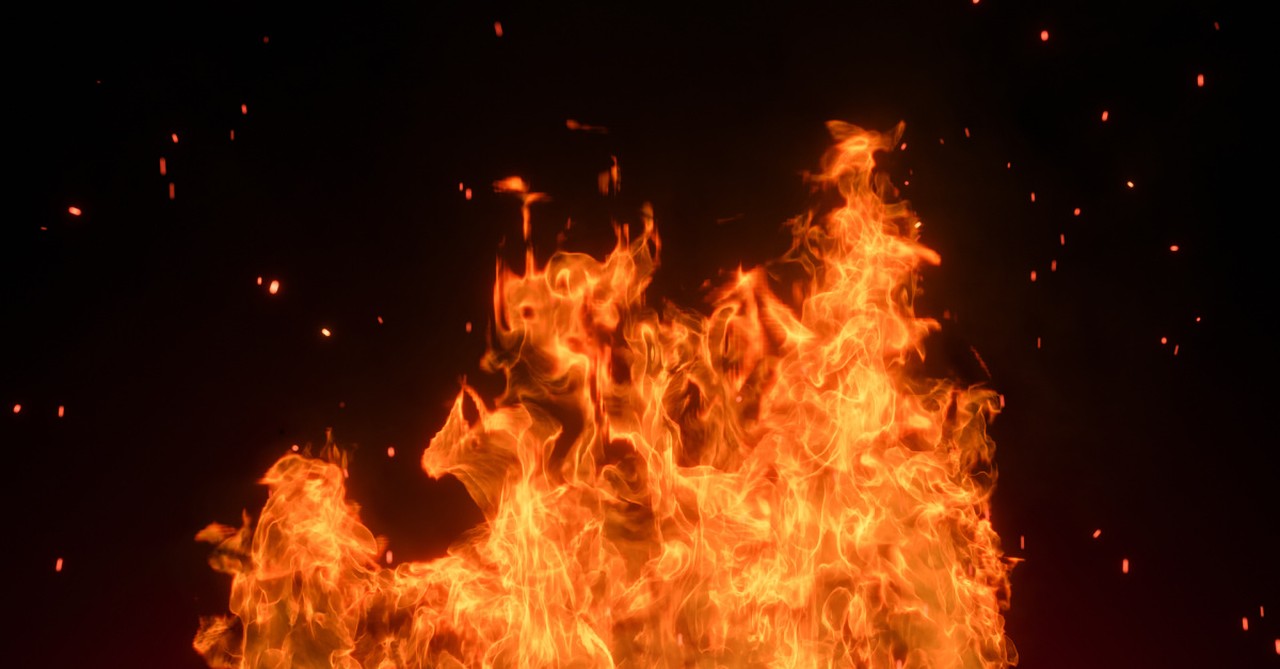
God Uses Spiritual Fire to Refine and Purify Those He Loves
SLIDE 5 OF 6
Of course, not every instance of fire in the Bible is a reference to God’s judgment.
In Proverbs, Solomon taught his son not to “reject the discipline of the Lord or loathe His reproof, for whom the Lord loves He reproves, even as a father corrects the son in whom he delights.” (Proverbs 3:11-12; see also Hebrews 12:6)
Similarly, the prophet Malachi, in speaking of the coming Messiah, wrote that, “He is like a refiner’s fire and like fullers’ soap. He will sit as a smelter and purifier of silver, and He will purify the sons of Levi and refine them like gold and silver, so that they may present to the Lord offerings in righteousness.” (Malachi 3:2-3; emphasis added; see also Zechariah 13:9)
In His love, the Father disciplines those He loves; and His desire is for us to become holy, righteous, and pure. Theologically, we would refer to this as the process as sanctification. Symbolically, the Bible uses the image of silver being refined by fire to describe the maturing and purification of the believer’s heart through the work of the Holy Spirit.
The apostle James mirrors this concept when he writes, “consider it all joy, my brethren, when you encounter various trials, knowing that the testing of your faith produce endurance. And let endurance have its perfect result, so that you may be perfect and complete, lacking in nothing.” (James 1:2-4; see also 1 Corinthians 3:13)
Photo credit: ©Getty Images/Nonnie192
God Himself is a "Consuming Fire"
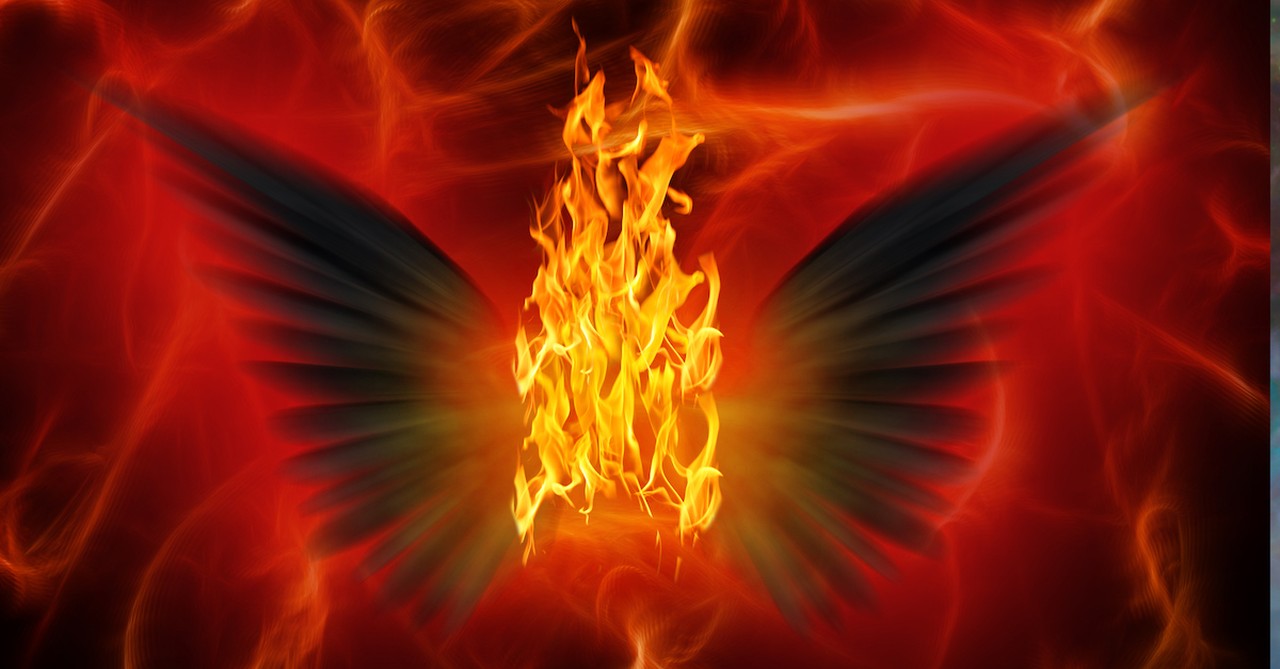
God Himself is a "Consuming Fire"
SLIDE 6 OF 6
Throughout the Bible, God Himself is also referred to as a “consuming fire.” (Hebrews 12:29; Isaiah 33:14; Isaiah 30:27) This is an image of the power, presence, and sovereign nature of God that is both awesome and terrifying to all who have eyes to see and ears to hear.
For example, the prophet Micah writes that, “the mountains will melt under Him and the valleys will be split, like wax before the fire, like water poured down a steep place.” (Micah 1:4; see also Psalms 68:2)
Zephaniah also writes that, “for all the earth will be devoured by the fire of My zeal.” (Zephaniah 3:8)
Of course, anyone who has seen an untamed wildfire destroy everything in its path knows how powerful and unstoppable a force it can be. So is man before the glory of the Lord. This is why the prophet Isaiah asks, “who among us can live with the consuming fire?” (Isaiah 33:14)
Furthermore, the presence of God is often revealed through fire throughout the Bible.
It was God who first appeared to Moses through the burning bush (Exodus 3:2). Later, God led His people through the wilderness with a cloud of fire by night (Exodus 13:21-22; Psalms 78:14; Nehemiah 9:12, 19), and He would descend upon Mount Sinai in fire (Exodus 19:18). According to Moses, “to the eyes of the sons of Israel the appearance of the glory of the Lord was like a consuming fire on the mountain top.” (Exodus 24:17)
Fire over the tabernacle signaled the presence of the Lord (Numbers 9:15-16), and it was fire that consumed the burnt offering and sacrifice at the dedication of the temple built by King Solomon (2 Chronicles 7:1-3). Accordingly, “all the sons of Israel, seeing the fire come down and the glory of the Lord upon the house, bowed down on the pavement with their faces to the ground, and they worshiped and gave praise to the Lord, saying, ‘Truly He is good, truly His lovingkindness is everlasting.’” (2 Chronicles 7:3)
Not coincidentally, God used fire from heaven to consume the altar of Elijah in his public showdown with the prophets of Baal on Mount Carmel (1 Kings 18:23-28). He would later take Elijah to heaven in a “chariot of fire”, as witnessed by Elisha (2 Kings 2:11, 6:17), and deliver his servants Shadrach, Meshach, and Abed-Nego from the fires of Babylon, appearing as the unscathed fourth man in the fire (Daniel 3).
The Bible also talks about the voice of God “hewing out flames of fire” (Psalms 29:7), His tongue and breath consuming like fire (Isaiah 30:27; 33:11), and His eyes being like “flames of fire.” (Revelation 1:14, 2:18, 19:12)
At the second coming of Jesus Christ, the apostle Paul writes that, “He will be revealed from heaven with His mighty angels in flaming fire, dealing out retribution to those who do not know God and to those who do not obey the gospel of our Lord Jesus.” (2 Thessalonians 1:7-8)
In the end, the significance and symbolism of fire in the Bible may vary, but one consistent theme that emerges from this imagery: God is holy, sovereign, powerful, and just. Who can hide or escape from His holy presence? (Psalms 139:1-12)
As it is written, “since we receive a kingdom which cannot be shaken, let us show gratitude, by which we may offer to God an acceptable service with reverence and awe; for our God is a consuming fire.” (Hebrews 12:28-29)
To Him be the glory forever and ever. Amen!
Further Reading
“What Does Baptism of Fire Mean for Christians Today?”
“What is the Refiner’s Fire in Christianity?”
“What Does it Mean that God is a Consuming Fire?”
“What is the Lake of Fire in Revelation?”
Photo credit: ©iStock/Getty Images Plus/bestdesigns


Originally published January 22, 2025.









